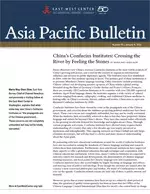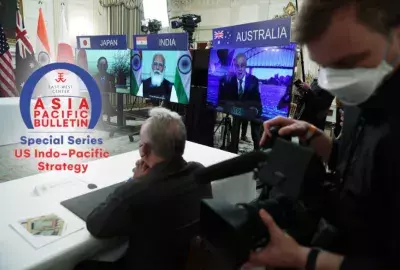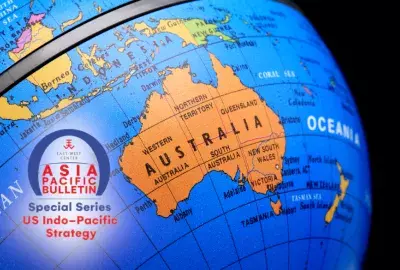Error message

Many observers view China's overseas Confucius Institutes as the most visible symbols of China's growing soft power, and a tool for the country to expand its international influence and advance its public diplomacy agenda. The institutes were first established in 2004, with the first institute opening in Seoul. The primary goal of these institutions is to promote Mandarin Chinese language learning. Other functions include promoting Chinese culture and developing positive opinions of China within a global setting. Maria Wey-Shen Siow reviews the establishment of Confucius Institutes worldwide, and considers what role they have, and potentially could have, as an instrument of Chinese soft power. The views expressed in this publication are those of the author and do not necessarily reflect the policy or position of the East-West Center or any organization with which the author is affiliated. |
Many observers view China's overseas Confucius Institutes as the most visible symbols of China's growing soft power, and a tool for the country to expand its international influence and advance its public diplomacy agenda. The institutes were first established in 2004, with the first institute opening in Seoul. The primary goal of these institutions is to promote Mandarin Chinese language learning. Other functions include promoting Chinese culture and developing positive opinions of China within a global setting. Maria Wey-Shen Siow reviews the establishment of Confucius Institutes worldwide, and considers what role they have, and potentially could have, as an instrument of Chinese soft power. The views expressed in this publication are those of the author and do not necessarily reflect the policy or position of the East-West Center or any organization with which the author is affiliated. |







